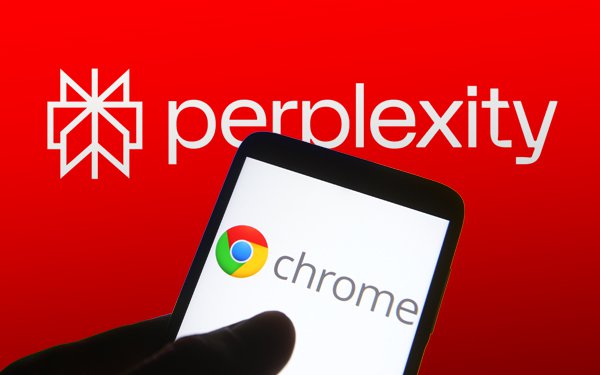
Perplexity on Tuesday made an unsolicited bid to
purchase Google’s Chrome browser for $34.5 billion, although the company launched its own AI-based browser in July in beta.
In a letter to Alphabet and Google CEO Sundar Pichai,
Perplexity said its offer to buy Chrome is “designed to satisfy an antitrust remedy in highest public interest by placing Chrome with a capable, independent operator,” reported The
Wall Street Journal.
Several investors, including large venture-capital funds, have agreed to back the full transaction, Perplexity told the WSJ.
The bid appears to send
a signal to U.S. District Judge Amit Mehta that there is an interested buyer, although Perplexity released its own AI-powered web browser, Comet, on July 9, 2025 in beta.
Perplexity subscribers at the time gained first access to the company’s AI-based browser Comet, which challenges Google Chrome and Microsoft Edge.
advertisement
advertisement
The browser comes with access to
Comet Assistant, an AI agent from Perplexity, and the web browser, and intends to automate routine tasks.
Experts suggest Chrome’s browsing experience could be worth much more than the
offered price. Baird Analyst Colin Sebastian believes Chrome will likely serve as a distribution springboard for future agentic services, and based on “potential search revenue
share alone, we think Chrome is probably worth ~$100 billion.”
Sebastian based this number on a hypothetical 20% revenue share (TAC) on about 45% share of monetizable
Google searches, and using a 5x revenue multiple.
“Based on impact to Google earnings, and using the company's forward P/E, estimated value to Google would also be in excess of $100
billion before other considerations,” he wrote in a research note published today. “We estimate losing Chrome would cost Google at least $1.00 (~10%) in EPS."
Data also
contributes to the price. Chrome collects personal identifiers such as user and device IDs and contact information.
MediaPost reached out to Google for comment. The company in the past has not
shown any interest in selling Chrome.
Pichai told the judge last year that forcing the company to sell Chrome or share data with rivals would harm Google’s business and potentially
create security risks.
New Street Research recently hosted Megan Gray, founder of GrayMatters Law & Policy, to discuss and preview the Google vs Department of Justice (DOJ) search
remedies ruling, which is expected later this month.
Gray shared the probabilities of the most-cited remedies. In a New Street Research note published Monday, she said she believes the
possibility hovers between 65% and 75% that the judge will “restrict agreements to a maximum number of years and then revisit in a few years to see if competition has improved. If not, it
is possible that TAC relationships could then be eliminated.”
Gray said that the possibility of divesting Chrome is "60% low confidence," and added that this is better than 50%
probability, and is slightly more likely now.
The need to require greater search syndication is high -- at 70% -- but analysts at New Street Research wrote that even Google seemed amenable to
this remedy during the trial.
Following the ruling, Gray expects Google to request a stay pending appeal – and for the DOJ to oppose it, but Judge Mehta should grant it.
“Gray noted that the topic came up during closing arguments, with Google asking for pre-emptive stay,” New Street Research wrote in the note. “Judge Mehta is following standard
practice, and once Google requests the stay, the Judge will likely grant it and ask both sides to begin the preparation work for implementing remedies.”